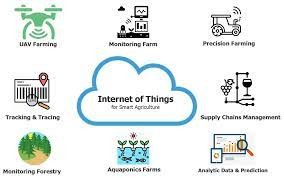
Harnessing the Power of the Internet of Things for Sustainable Business

The Internet of Things (IoT) has revolutionized the way we interact with technology and has the potential to drive significant positive impact in various sectors, including sustainable business practices. IoT refers to the interconnection of devices, sensors, and systems through the internet, enabling them to communicate, collect and exchange data. By leveraging this technology, businesses can enhance operational efficiency, reduce waste, and contribute to sustainable development. This article explores how IoT works for sustainable business and the benefits it brings.
1. Smart Resource Management:
One of the key aspects of sustainable business is efficient resource management. IoT-enabled devices and sensors can monitor and optimize resource consumption, such as energy, water, and materials. For instance, smart meters can track energy usage in real-time, enabling businesses to identify energy-saving opportunities and reduce their carbon footprint. Similarly, intelligent irrigation systems can analyze weather patterns and soil moisture levels to optimize water usage in agriculture. By leveraging IoT for resource management, businesses can minimise waste, conserve resources, and reduce costs.
2. Supply Chain Optimization:
The IoT plays a vital role in ensuring transparency and sustainability across the supply chain. With IoT devices and sensors, businesses can track and monitor products throughout their journey, from production to delivery. This real-time visibility enables efficient inventory management, reduces the risk of product spoilage, and minimises the environmental impact of transportation. Additionally, IoT-enabled supply chains can identify bottlenecks and optimize routes, thereby reducing fuel consumption and greenhouse gas emissions.
3. Predictive Maintenance:
IoT-powered predictive maintenance is transforming the way businesses manage their assets. By equipping machinery and equipment with sensors, companies can monitor their performance in real-time. These sensors can detect anomalies and send alerts when maintenance or repairs are required, preventing costly breakdowns and reducing downtime. Predictive maintenance not only ensures operational efficiency but also extends the lifespan of assets, reducing the need for frequent replacements and minimising waste.
4. Waste Management:
IoT-based waste management systems enable businesses to streamline waste collection and disposal processes. Smart bins equipped with sensors can monitor waste levels and optimize collection routes, reducing unnecessary trips and fuel consumption. Furthermore, IoT technology allows for the implementation of smart recycling systems that can sort and separate recyclable materials efficiently. By leveraging IoT for waste management, businesses can reduce landfill waste, promote recycling, and contribute to a circular economy.
5. Environmental Monitoring:
IoT sensors and devices provide real-time data on various environmental parameters, such as air quality, temperature, and humidity. This information is crucial for businesses to make informed decisions regarding their operations’ environmental impact. For instance, factories can monitor emissions and take preventive measures to ensure compliance with environmental regulations.Additionally, IoT-enabled agriculture systems can analyse environmental data to optimize irrigation, pest control, and crop health management, leading to sustainable farming practices.
The Internet of Things offers immense potential for businesses striving to integrate sustainability into their operations. By leveraging IoT technology, companies can enhance resource management, optimise supply chains, implement predictive maintenance, streamline waste management, and monitor environmental parameters. Embracing IoT not only contributes to sustainable business practices but also brings tangible benefits, including cost savings, increased operational efficiency, and improved brand reputation. As the IoT continues to evolve, its role in fostering sustainable development will become increasingly prominent, paving the way for a more sustainable and interconnected future.

